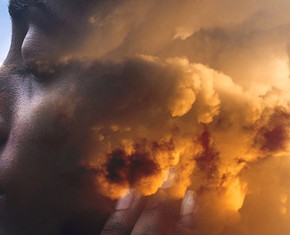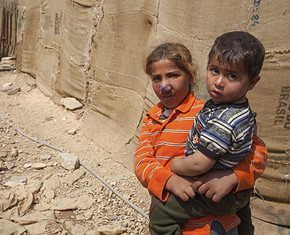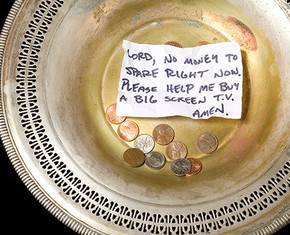The views expressed in our content reflect individual perspectives and do not represent the authoritative views of the Baha'i Faith.
The Divine Springtime is come… Bestir thyself, and magnify, before the entire creation, the name of God, and celebrate His praise, in such wise that all created things may be regenerated and made new. – Baha’u’llah, Gleanings from the Writings of Baha’u’llah, p. 27.
Baha’is believe in one God.
Throughout history, in different cultures and in different languages, we humans have referred to God by many different names—Yahweh, Allah, El, Om, Tunkasila, Gayatri, Abba, Brahman, Lord, Shangdi, the Light, Nkosi, Maypakal, Haneunim, Shen, the Great Spirit. From a Baha’i perspective all of those names refer to one Creator, one Unknowable Essence, one transcendent Deity, one Supreme Being.
In the same way, we humans have followed many different spiritual paths. Experts estimate that approximately ten thousand sects, denominations and religions now exist, and many more existed in the past. But despite the differences in doctrine that make them diverge from one another, all faiths have a great deal in common.
Every Faith encourages human beings to develop a higher consciousness, transcend the physical world and focus on the spiritual. They all increase our awareness of the divine, the sublime and the numinous. They all call upon us to refine our characters and our actions. They all ask us to love one another, and to worship the ultimate Source of that love. They all focus on a shared sense of collective well-being. They all counsel us toward kindness.
Those underlying shared themes exist in each legitimate religion, and those deep truths form the core of every true Faith. The Baha’i teachings clearly say that those bedrock spiritual principles—the divine qualities of God—will never change. They reflect the permanent inner reality of faith:
The first aspect of the revealed religion of God is that which concerns the ethical development and spiritual progress of mankind, the awakening of potential human susceptibilities and the descent of divine bestowals. These ordinances are changeless, essential, eternal. The second function of the divine religion deals with material conditions, the laws of human intercourse and social regulation. These are subject to change and transformation in accordance with the time, place and conditions. – Abdu’l-Baha, The Promulgation of Universal Peace, pp. 97-98.
…which constitutes the essence of the religion of Adam, Noah, Abraham, Moses, Christ, Muhammad, The Bab, and Baha’u’llah, and which will endure throughout all the prophetic Dispensations. It will never be abrogated, for it consists in spiritual rather than material truth. It is faith, knowledge, certitude, justice, piety, high-mindedness, trustworthiness, love of God, and charity. It is mercy to the poor, assistance to the oppressed, generosity to the needy, and upliftment of the fallen. It is purity, detachment, humility, forbearance, patience, and constancy. These are divine qualities. – Abdu’l-Baha, Some Answered Questions, newly revised edition, p. 54.
Those shared ethical and spiritual teachings, the Baha’i writings repeatedly emphasize, mean one thing: all religion is a single system. Just as humanity itself evolves over time, so does our one common Faith.
That single system began long before we kept historical records—you can see its holy symbols in primitive cave paintings and the artifacts of ancient tribal civilizations. That single system existed in oral traditions which pre-dated written documents. That single system contains innumerable prophets, messengers, spiritual leaders, holy figures and culture heroes, many of their names lost to the passage of time. That single system, like teachers in a school or chapters in a textbook, gradually and progressively teaches humanity the values and the moral guidance necessary for its improvement and spiritual growth:
Praise be to God, throughout succeeding centuries and ages the call of civilization hath been raised, the world of humanity hath been advancing and progressing day by day, various countries have been developing by leaps and bounds, and material improvements have increased, until the world of existence obtained universal capacity to receive the spiritual teachings and to hearken to the Divine Call. The suckling babe passeth through various physical stages, growing and developing at every stage, until its body reacheth the age of maturity. Having arrived at this stage it acquireth the capacity to manifest spiritual and intellectual perfections. The lights of comprehension, intelligence and knowledge become perceptible in it and the powers of its soul unfold. Similarly, in the contingent world, the human species hath undergone progressive physical changes and, by a slow process, hath scaled the ladder of civilization, realizing in itself the wonders, excellencies and gifts of humanity in their most glorious form, until it gained the capacity to express the splendours of spiritual perfections and divine ideals and became capable of hearkening to the call of God. – Abdu’l-Baha, Selections from the Writings of Abdu’l-Baha, p. 285.
Religion, the Baha’i teachings say, is continuous, progressive and sequential—just like any living organism. Its ever-unfolding teachings move us from one stage of development to the next, refining our characters and our civilizations. With every new messenger from God, religion is renewed. Each one of those founders of Faith refreshes and reinvigorates the essential core of religious teaching; and gives humanity new social teachings to further guide our growth and development.
So each religion, as any other living system does, has a life cycle. Like the sun, it dawns, rises to its zenith of light and power, and then slowly fades and ultimately sets. Rather than creating thousands of competing religions, Baha’is believe, God has created one continuous expression of faith, one sun of truth, one everlasting religion which rises and sets with many different names:
From the seed of reality, religion has grown into a tree which has put forth leaves and branches, blossoms and fruit. After a time this tree has fallen into a condition of decay. The leaves and blossoms have withered and perished; the tree has become stricken and fruitless. It is not reasonable that man should hold to the old tree, claiming that its life forces are undiminished, its fruit unequalled, its existence eternal. The seed of reality must be sown again in human hearts in order that a new tree may grow therefrom and new divine fruits refresh the world. By this means the nations and peoples now divergent in religion will be brought into unity, imitations will be forsaken and a universal brotherhood in the reality itself will be established. Warfare and strife will cease among mankind; all will be reconciled as servants of God. – Abdu’l-Baha, Baha’i World Faith, p. 226.
















Comments
Sign in or create an account
Continue with Googleor